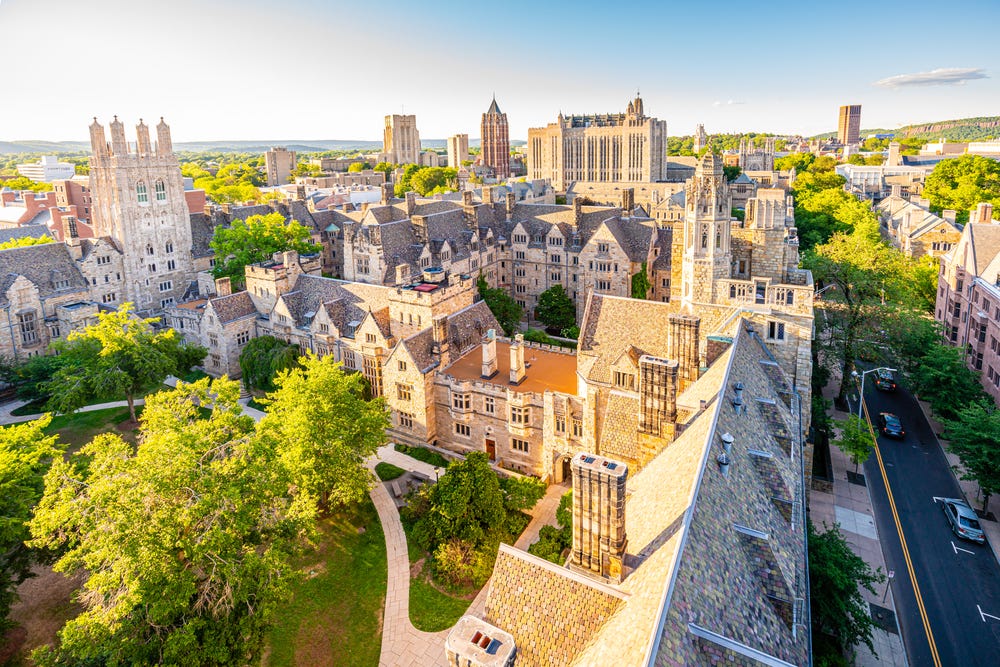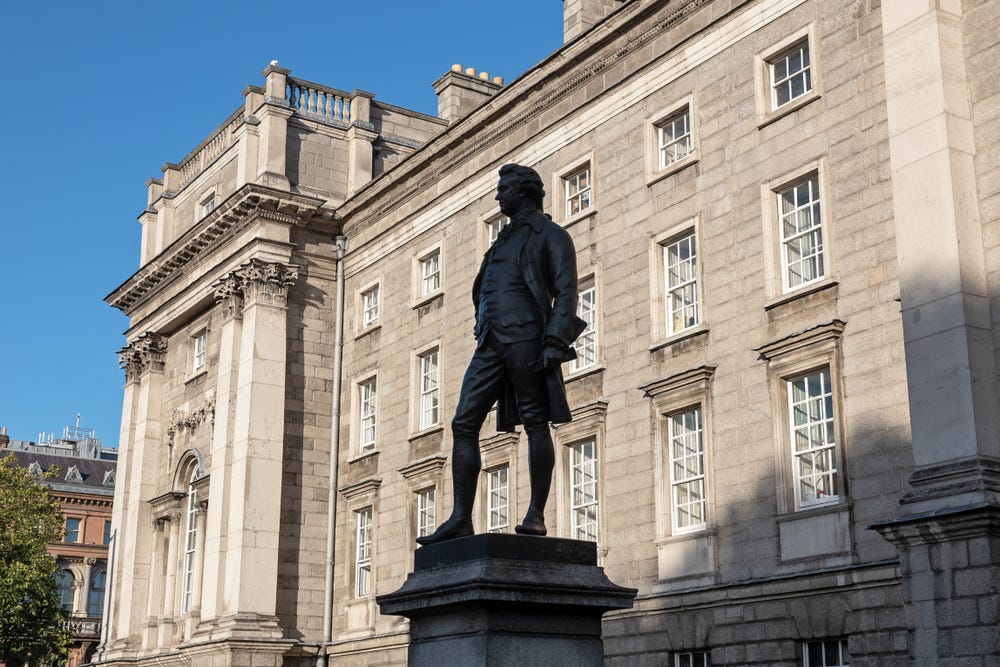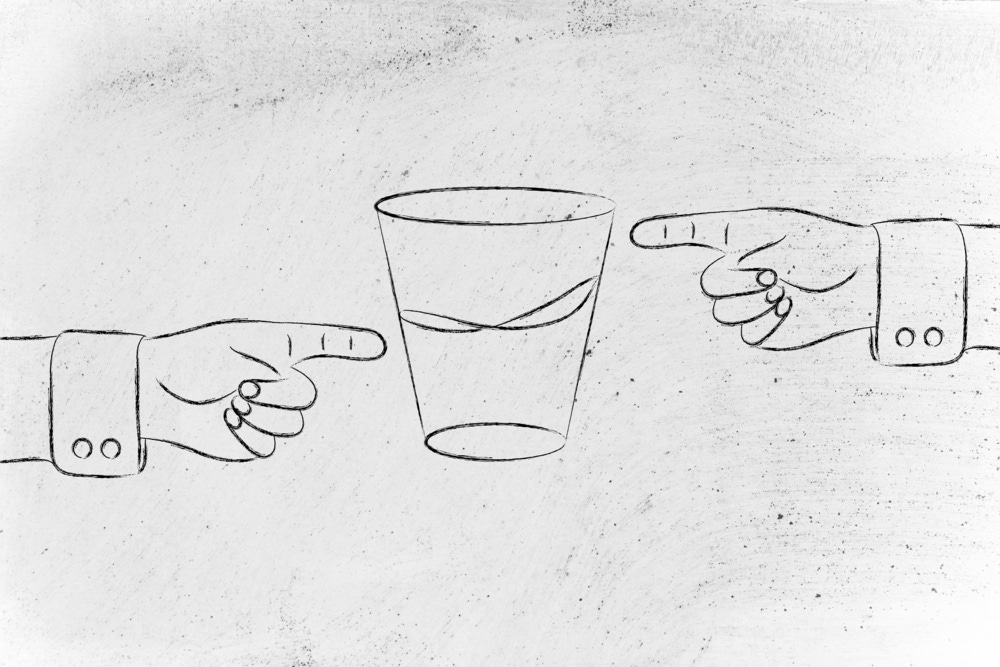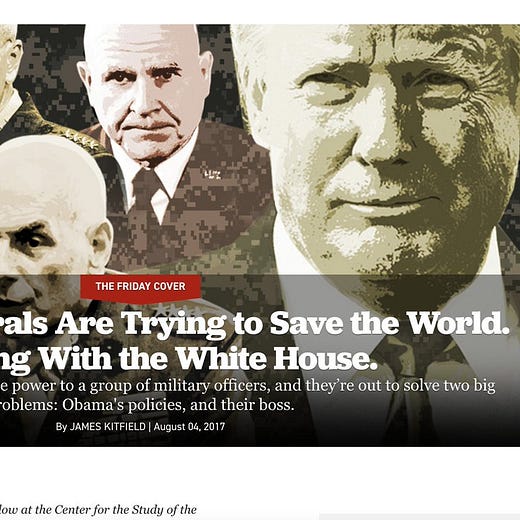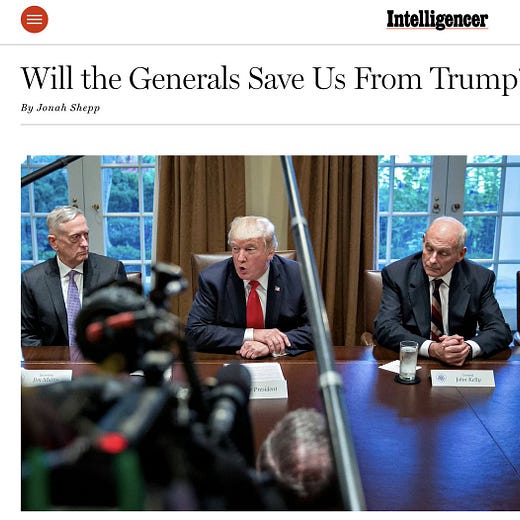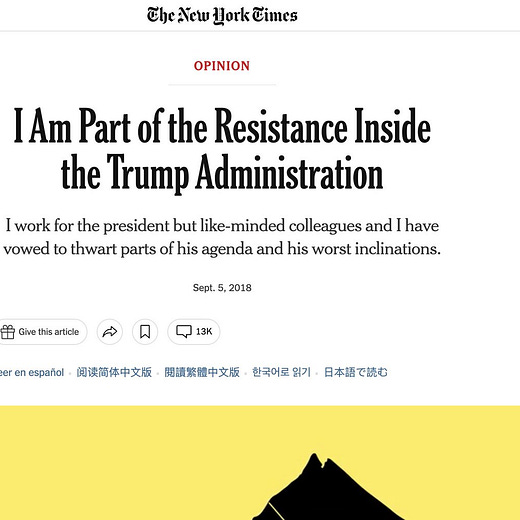E-Pluribus | August 5, 2022
Universities have lost their way, the conservative liberalism of Edmund Burke, and the conservative case for America's half-full glass.
A round-up of the latest and best writing and musings on the rise of illiberalism in the public discourse:
Ayaan Hirsi Ali: Our universities need a revolution
In conjunction with her involvement at the new University of Austin (see Item #3), Ayaan Hirsi Ali contemplates the unfortunate decline of the university writ large over recent decades. Ali says Harvard, Yale and other institutions of higher learning need to return to their roots of teaching students how and not what to think.
In 1951, William F. Buckley Jr. warned in God and Man at Yale of his alma mater’s inability to prepare its students for the real world. Its subtitle, The Superstitions of “Academic Freedom”, hinted at the already existing tendency for administrators to hire academics who only teach ideas they deem acceptable. Scepticism was banished: to Buckley, political radicals were subverting American society by indoctrinating their students with atheism and collectivism. Yet he remained an “epistemological optimist”, hoping that sense would prevail both in the Ivy League and across the nation.
More than 70 years later, that sense has manifestly not prevailed. Take the case of Roland Fryer. A hugely gifted and until recently celebrated black professor of economics at Harvard, he was suspended for two years without pay following the most tenuous sexual harassment claims. Many suspect the real reason for his humiliating treatment was his research showing that African Americans are not disproportionately the targets of lethal violence by the police. There were, Fryer wrote, “no racial differences in either the raw data or when contextual factors are taken into account”.
[ . . . ]
If universities once made promises to teach their undergraduates how to think, they now aim to teach them what to think. Students are now taught that disparities between groups are always the result of discrimination; the US is irredeemably racist; racism is everywhere; invisible power structures of structural oppression are equally ubiquitous and need to be dismantled; meritocracy is a myth; colour-blindness is a misleading concept; a focus on individual rights distracts from the real struggle. Gone are those such as Roland Fryer who sought to inquire freely into the most important questions facing society today through well-gathered evidence and rigorous logic. Hounded out by a vocal minority of thin-skinned students and zealous administrators, they are replaced by progressive conformists.
Read it all.
Daniel B. Klein and Dominic Pino: Edmund Burke’s Conservative Liberalism
While certain thinkers of old have fallen on hard times in the eyes of many in the modern world for their acceptance of much that offends today’s sensibilities, there is still much to learn from them. In an age where illiberalism is again on the rise, Daniel Klein and Dominic Pino write at National Review that Edmund Burke’s “conservative liberalism” is a worthy study.
“Conservative liberalism” is a suitable name for Burke’s outlook. In that expression, “liberalism” is the noun. It is primary. It communicates something about the house people are to make their homes in. The adjective, “conservative,” curbs the enthusiasm of liberalism but enhances its wisdom. Conservatism makes liberal principles more practical, pertinent, and robust. It grounds the arc of liberal civilization; it spans continents; it can endure.
[ . . . ]
In the 1770s, Adam Smith and others christened the attaching of a political meaning to the word “liberal.” Burke was among them. In the 1777 “Letter to the Sheriffs of Bristol,” Burke spoke of “the liberal government of this free nation.” In a 1778 letter he writes that “the prosperity which arises from an enlarged and liberal system improves all its objects.” In 1778, Burke speaks of the “liberality in the commercial system.” In Reflections on the Revolution in France, he speaks of “a liberal descent” by which, “always acting as if in the presence of canonized forefathers, the spirit of freedom, leading in itself to misrule and excess, is tempered with an awful gravity” — a remark that Gertrude Himmelfarb aptly presents as liberal in the Smithian sense. Burke declaims against the revolutionary assembly in France: “Their liberty is not liberal”; “it is a vile illiberal school, this new French academy of the sans culottes.” His posthumous Thoughts and Details on Scarcity is plainly and strongly favorable to the presumption of liberty and hence free markets.
[ . . . ]
Liberty enjoys a presumption, but so does something else: the status quo. The two presumptions are in tension when considering a policy reform that would augment liberty. In that case, they must moderate each other. The matter of how great a presumption to give to the status quo requires another contextualization of “conservative”; conservative in policy reform relates to but should be distinguished from conservative in polity reformation. Burke was conservative in polity reformation — fundamental changes to the constitution of the state and of the citizenry — but he was not particularly conservative in policy reform.
Read it all here.
Daniel Henninger: The Conservative Case for Optimism
Since at least the days of scripture’s The Preacher in Ecclesiastes, people have been asking, “What is the cause that the former days were better than these?” While doom and gloom may be the fashion of today as well, Daniel Henninger argues at The Wall Street Journal that there is cause for optimism, and he calls for conservatives to join him.
If you prefer your optimism hedged, guarded or provisional, be my guest, but an upside is still poking through the clouds.
[ . . . ]
Crime in America strikes many as totally out of control. Not quite. Voters are moving to regain control of criminal justice and their own safety. San Franciscans just recalled progressive District Attorney Chesa Boudin. An effort to recall Los Angeles County District Attorney George Gascón has collected more than 700,000 signatures.
As my colleague Kimberley Strassel noted recently, voter efforts to turn back progressive prosecutors have succeeded in local elections in Nevada, North Carolina, Oregon, and Utah.
Days ago in these pages, George Soros explained why he would continue to fund progressive prosecutors. His money worked once but now, not so well.
New York City is out of voter luck. Despite electing anticrime Mayor Eric Adams, timid fellow Democrat Gov. Kathy Hochul is the only person who can remove the progressive district attorneys making prosecution noncalls in four of the city’s five boroughs. For now, New Yorkers can read headlines such as this last week in the Times: “Brooklyn Bishop Robbed by Three Armed Assailants While Delivering Sermon.”
[ . . . ]
The union-led mass closing of public schools during the pandemic was a rare political event that simultaneously touched millions of people in an area of life normally taken for granted. No longer.
Parental unrest over the schools emerged most prominently last year in Republican Glenn Youngkin’s defeat of Terry McAuliffe in Virginia’s gubernatorial contest. Even more telling was New Jersey, where Republican Jack Ciattarelli nearly defeated Gov. Phil Murphy. In no state did unions shut down the schools more tightly than blue New Jersey. Incensed parents filed lawsuits against districts to reopen the schools, and many of them voted for Mr. Ciattarelli.
The past two years have seen remarkable momentum and growth in the states for the school-choice movement, which in great part is a consequence of anger over the damaging shutdowns.
Read the whole thing.
Around Twitter
The Foundation for Individual Rights and Expression previews possible free speech issues coming after the overturning of Roe v. Wade. Where does free speech end and abetting criminal behavior begin? Excerpts from a longer thread:
A few thoughts (excerpts) from a thread by Glenn Greenwald on political goal-post shifting depending on who is in power:
And finally, Wesley Yang on the dubious, postmodern path to achieve the expression one’s true self:




